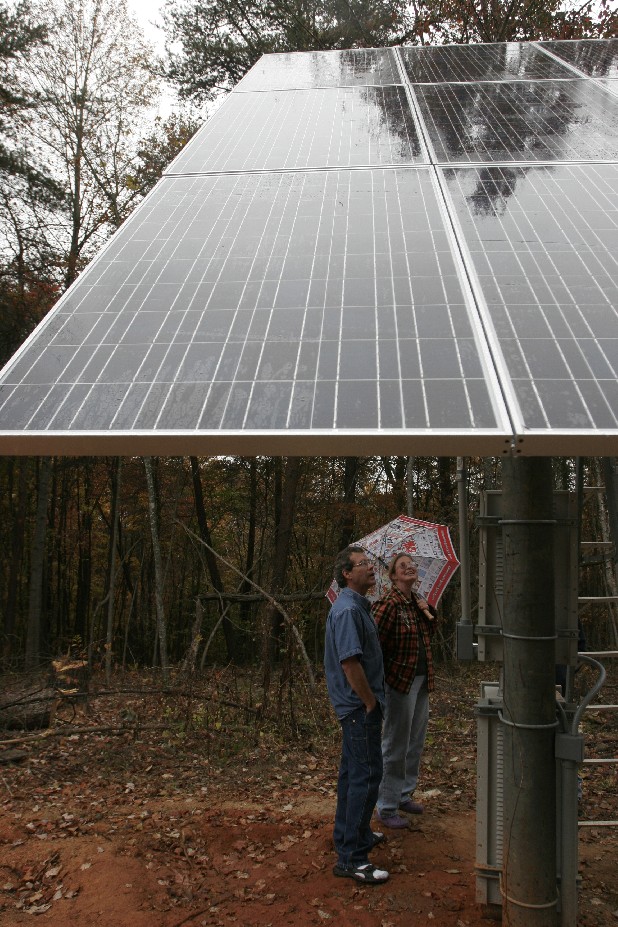Georgia debates solar panel leasing
Monday, February 24, 2014
ATLANTA - Georgia law requires most customers to get their electricity from a traditional utility. But that law was enacted before the advent of solar power.
Now, some state lawmakers want to open up the electricity market to other companies in hopes of spurring the growth of the solar energy sector and giving customers more choices.
State Rep. Mike Dudgeon is proposing legislation that would help companies compete with the utilities by allowing customers to lease -- rather than buy outright -- solar panels, since many potential solar customers cannot afford to spend thousands of dollars to buy their own solar equipment.
The Johns Creek Republican said the increased competition could lead to lower consumer energy bills. His proposal also would allow third-party companies to sell solar electricity directly to customers.
"You can use any financing mechanism that you want that the free market will provide," Dudgeon said.
Utility companies that have been historically wary of weakening the monopoly system have largely refrained from criticizing Dudgeon's plan since it seems highly unlikely to pass this year. Dudgeon this week asked for more study and said he will not seek a vote until next year.
The issue remains unresolved nationally.
Laws in Georgia and five other states -- Florida, North Carolina, Kentucky, Iowa and Oklahoma -- could prevent third-party energy providers, including solar firms, from directly selling electricity to those already served by a traditional power company, according to a 2013 analysis by the North Carolina Solar Center.
It showed 22 states and Washington allowed non-utility companies like solar firms to sell electricity to customers, while the issue is unresolved in the remaining states.
Dudgeon said the legal confusion in Georgia was enough to deter growth in solar power.
"Business doesn't like uncertainty," he said. "They don't want to come in here and start marketing to Georgia and then all of a sudden get hit with a court case and now all of the sudden everything is up in limbo."
After a brief hearing Thursday, Dudgeon said he wanted to negotiate language acceptable to utility companies and others, then return next year and pass a new law.
Allowing more solar companies into the market could spark opposition from the state's electric monopolies. For example, Southern Co. has warned investors that if the cost of generating solar power drops, it could threaten the firm's business model, which uses a small number of large power plants to churn out cheap electricity.
However, utility lobbyists held off on making major criticism of Dudgeon's plan as it became clear his bill was unlikely to move forward this year.
Southern Co. lobbyist John D'Andrea told lawmakers Thursday that the power company was willing to negotiate a mutually acceptable agreement with state lawmakers.
Heather Teilhet, a lobbyist for the Georgia Electric Membership Corp., said Dudgeon's plan could have "unintended consequences" for the state's electric monopoly system, but she did not elaborate.

